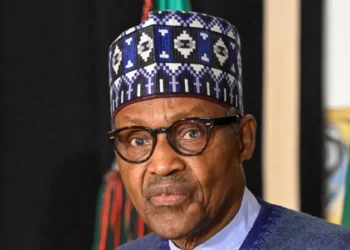The United Nations Security Council will meet on Monday to discuss the State of Palestine’s pursuit of full membership as a sovereign state in the United Nations. This development follows formal engagements between Palestine and the Security Council as well as the Secretary-General of the United Nations. Notably, the Arab Group, the Organisation of Islamic Cooperation, and the Non-Aligned Movement have all expressed support for Palestine’s bid.
Palestine now has the status of a non-member observer state at the United Nations. However, Palestine’s observer status does not provide it the power to vote on General Assembly resolutions or to seek non-permanent membership on the Security Council.
The probable elevation of Palestine to full membership in the United Nations has substantial geopolitical ramifications. Palestine’s transition from non-member observer to full member status would allow it to fully participate in UN activities, including voting and decision-making. As a member state, Palestine would be able to express its concerns, advocate for its interests, and participate in diplomatic negotiations on an equal footing with other sovereign governments.
Furthermore, full membership would represent worldwide acknowledgment of Palestine as a sovereign state, reinforcing its territorial limits, governmental institutions, and national identity. This recognition could help Palestine gain legitimacy in international forums and improve its position in peace talks with Israel.
Additionally, UN membership would give Palestine access to a variety of UN agencies, specialist bodies, and projects, boosting collaboration with organisations such as UNESCO, WHO, and UNICEF. Furthermore, participation would allow Palestine to become a party to international treaties and conventions, such as the Geneva Conventions, enhancing its legal standing and rights.
Crucially, as a UN member state, Palestine would be able to seek legal redress before international institutions such as the International Court of Justice (ICJ) and the International Criminal Court (ICC). Furthermore, membership would allow Palestine to raise matters to the UN Security Council, where resolutions have binding repercussions.
The United Nations Security Council’s deliberations on Palestine’s candidature for full membership highlight the complexities and implications of the fight for statehood recognition. As stakeholders engage in conversations, the outcome has far-reaching ramifications for the future course of the Israeli-Palestinian conflict, as well as the pursuit of regional peace and stability.
Full membership requires approval from both the UN General Assembly and the UN Security Council, with any of the Security Council’s five permanent members (P5) wielding veto power. Israel and its supporters, particularly the United States, have consistently rejected Palestinian statehood, and this posture may continue. The geopolitical picture in the region remains complex, with concerns that full membership could jeopardise the Israeli-Palestinian peace process. Israel may interpret it as a unilateral action by Palestine and respond appropriately. However, proponents think that recognition might spark real negotiations between the two parties, leading to a long-term deal.








